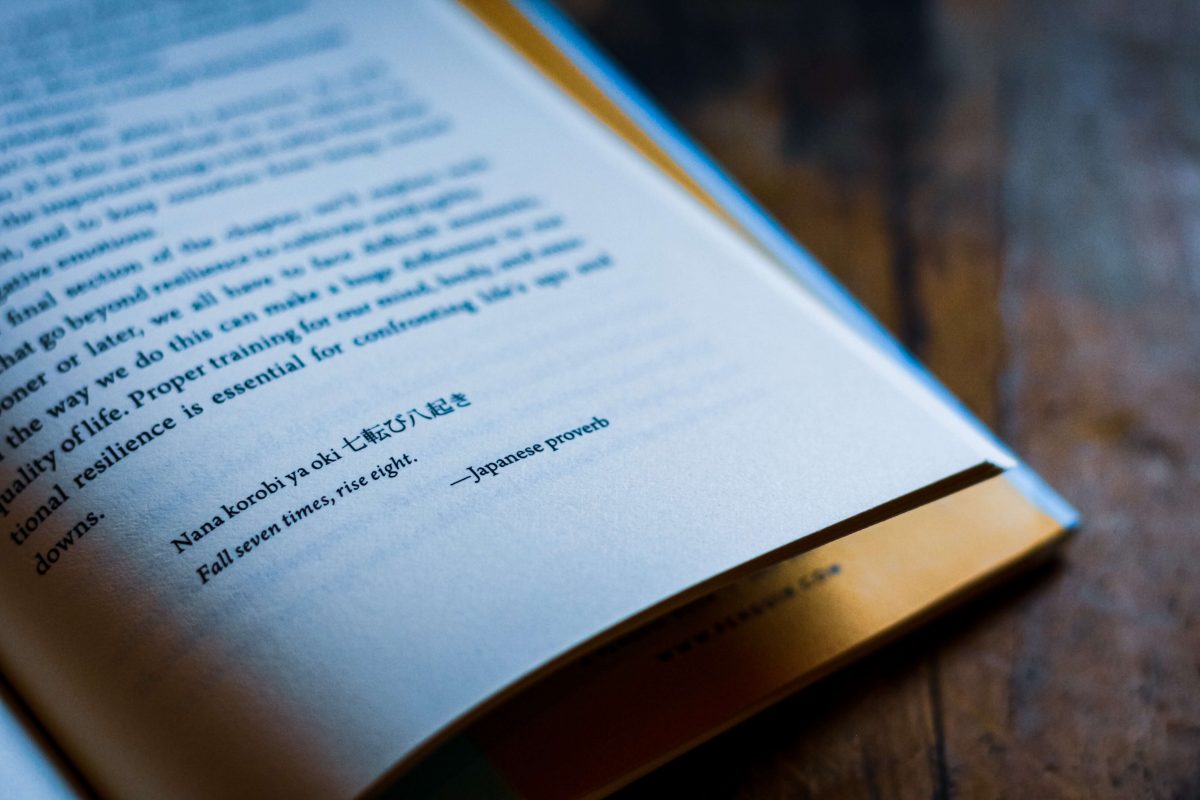You may have heard the word kaizen and wondered what it meant. The answer is stranger than you’d think.
The root of the word kaizen is in manufacturing and business processes. But the principles behind it are applicable in our lives too. That’s why it has crept into the world of self-help.
But what does kaizen actually mean?
What is kaizen, and what does it mean?
Kaizen is a concept and a Japanese word. This is the word:

The word simply means ‘change for the better.’
A more straightforward translation might be ‘improvement.’
There isn’t much philosophical about the words improvement or kaizen by themselves. But kaizen has grown in meaning in the last half-century to describe the philosophy of continuous improvement both in business and private life.
The Deeper Meaning of Kaizen
The English language is well-known to relentlessly and mercilessly acquire words and phrases from others — often shamelessly ignoring its deeper meanings.
One of my favourite quotes on this:
“We don’t just borrow words; on occasion, English has pursued other languages down alleyways to beat them unconscious and rifle their pockets for new vocabulary.” James Nicoll
Kaizen has avoided that treatment so far. But unpicking its meaning reveals a philosophical beauty.
This gent does a better job than I could ever do.
Kai (revolution) = Self & Whip (flagellate)
Zen (good) = Sheep (lamb/goat) & Alter (sacrifice)
Kaizen, translated very literally, means revolution through small sacrifices.
I love the philosophy behind this.
Change is the relentless beating of life upon us.
And ‘good’ essentially meaning sacrifice, or from sacrifice. Because nothing truly good ever happened without a little sacrifice.
Sacrifice is how you get there. Not huge sacrifices, just small, meaningful ones.
Keep both of those meanings in mind as we go a little deeper into the meaning of the word kaizen, and you’ll see the power these short lines represent.
Kaizen translates to improvement.
But ‘improving’ isn’t very helpful. How do you improve? And how do you know you’ve improved when you get there?
To incorporate the philosophy of kaizen into your life, you need a framework.
Here are some pillars that make kaizen practical for personal growth.
The 3 Pillars of Personal Kaizen
Kaizen has been turned into a framework for creating better businesses. And as with any such framework, it rests upon pillars or principles. You can find various versions of these, but they all seem to be rather wordy and boring business-speak.
After some research, I decided that these three were probably the most important — everything else stemmed from them. Someone will probably complain about me twisting meanings here, but I don’t care. Words are what you make of them.
1. Mokuteki 目的 (Purpose)
Mokuteki is at the core of kaizen. It roughly means ‘purpose’ or ‘goal.’
Mokuteki is the growth part, the addition, the result of the improvement.
If you want to execute kaizen in your life, mokuteki is both your goals and your intention to achieve them.
It’s the whole point.
You could also use seichō (成長), meaning growth or zō‘ (増) meaning increase. Or just kaizen, of course.
I find ‘purpose’ to be most fitting for self-improvement, partly because of its double meaning in English.
You must have purpose — intent — to change. And you must have a purpose for doing it—your objective. The roots of the word purpose are from the Latin for resolve. Something else you must have.
One of the pillars of the original business philosophy![]() was eliminating mura or ‘useless – waste.’
was eliminating mura or ‘useless – waste.’
This also fits nicely with our use of the word ‘purpose’ because eliminating waste and distractions becomes easy once you have a purpose.
There are some elements of this in personal kaizen, and we’ll certainly need to eliminate things that don’t help us work towards our goals.
2. Gemba 現場 (Place)
Gemba is a Japanese word that translates approximately as the real place. Google (rather dully) tells me that it means on-site.
If you’re interested, the two kanji characters that make this word translate as current and field.
In the business consulting frameworks, Gemba typically refers to the workplace or factory floor. But we can use it in several other ways:
A police detective would call a crime scene the gemba, live TV journalists report from gemba. It’s where the action happens, where the rubber hits the road. It’s the field where you will sow your seeds of growth.
If you are trying to apply kaizen to your life, gemba is the area of your life that you want to improve.
To some people, their gemba is obvious and specific. It could be learning to play the guitar or running a marathon.
It could be more abstract for other people, like being happier, or more confident, or more successful in your career.
You need gemba to help you focus your efforts. It directs your energy and shows you what you need to sacrifice. It helps you cut away the chaff and focus on what’s essential to your mokuteki.
It keeps you on track. Identifying your gemba is essential if you want to benefit from the principles of kaizen.
You cannot climb any mountains unless you pick one mountain to climb first.
Gemba is also where you do that improvement: work, home, the gym. Understanding how your environment affects you is an essential part of self-development.
3. Renzoku 連続 (Persistence)
The final piece of a kaizen philosophy is this: continuity. That’s the more common translation of renzoku. But that doesn’t make a neat Three Ps for the pillars. 🙂
The business concepts refer to this as standardization — and that’s important to remember. Another way we could look at this could be iji (維持), which would mean sustainability or to maintain, but I prefer 連続 because it is more about using it continually. And also the whole ‘P’ thing I mentioned earlier.
Personal kaizen is more about continuity because you can’t standardize life in the same way you can standardize a production line or business process.
Kaizen isn’t about making fast changes to your lifestyle or habits. It’s about continuously making improvements to your lifestyle or habits. These slight improvements will all add up to significant change faster than you think.
It’s not about quick hacks and instant results. Because, as appealing as those may be, these things don’t work.
You might drop the ~10lb (for me, it was about ~25lb) that you thought was making you unhappy. You might get the raise you need to feel like a success. You might find the perfect productivity app, or personal trainer, or diet plan, or partner. But none of that will count for shit in the long run because they’re not what drives change.
Kaizen is about taking small definite actions every day — some of which you can standardize — no matter what happens. It’s about persistence.
Renzoku is the current that drives the change. It’s your motor, the wind in your sails. It’s the realization that there is no final ‘better’ — perfection is impossible, after all.
The power behind the kaizen philosophy lies in renzoku. The whole point is just to put one foot in front of the other and keep on moving. It’s the method that makes it all possible; it’s the regular deposits you make into your account.
But it’s also the realization that making the regular deposits is more important than how much they are or how much is in the account!
It’s the action that makes it all possible.
Kaizen is a Way of Approaching Life
Here’s another analogy that relates to this story about the man who wanted to climb the mountain.
Adopting a kaizen philosophy is deciding to climb the mountain for yourself. It is also your map and your method.
If you are that traveller walking up a mountain, gemba is the mountain, mokuteki is the view from the top, and renzoku is the action of putting one foot in front of the other; the steps you take to get there.
And those travellers who are fortunate enough to reach the top and look out on that view tend to realize one thing. Each of those little steps was the point. The steps were the goal in themselves. After all, how many people climb just one mountain?
Once you get to the top, you realize that the whole point is to climb — and to keep climbing.
Kaizen is the toolkit that will help you climb any mountain you choose.
What Kaizen Means to Me
This whole blog is about what kaizen is to me and how to use this practical philosophy to improve your life.
Kaizen helped me to turn my life around completely, and it can help you too.
It’s taken me from being a lost, sad, goal-less drug addict to a productive, healthy (mostly) happy human, doing what I enjoy for a living.
And hopefully, it can help you too.
I’d also recommend reading one of the top books about kaizen for self-improvement.
And for some more quick inspiration, check out these continuous improvement and kaizen quotes.
